Advertisement
Advertisement
Jorell Pontes-Borje
About me:
I haven't shared any details about myself.
About my family:
I haven't shared details about my family.
Interested in the last names:
I'm not following any families.
Updated: November 26, 2023
Message Jorell Pontes-Borje
Loading...one moment please


Recent Activity

Jorell Pontes-Borje
joined AncientFaces!
Nov 26, 2023 12:05 PM
joined
Member as of November 26, 2023
Member as of November 26, 2023
Photos Added
Jorell hasn't shared any photos yet.
Recent Comments
Jorell hasn't made any comments yet
Jorell's Followers
Be the first to follow Jorell Pontes-Borje and you'll be updated when they share memories. Click the to follow Jorell.
Favorites
Loading...one moment please



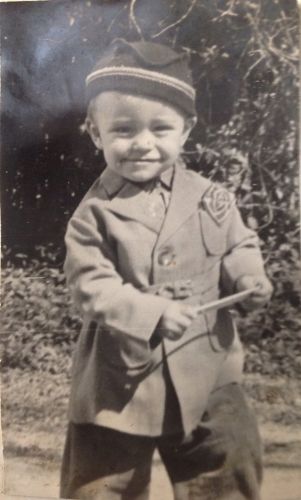
Lost & Found
Help reunite mystery or 'orphan' photos that have lost their families.
Photos with the names and dates lost in history. AncientFaces has been reuniting mystery and orphan photos with their families since we began in 2000.
This 'Lost & Found' collection is of photos foun... 
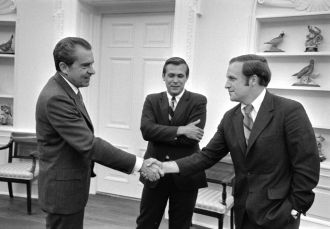
Political
Original photos of the politicians and political events throughout the past few centuries.
Welcome to a collection of photographs that document the fascinating history of politics. From democracies to monarchies, communism to fascism, and everything in between, this page captures the divers... 
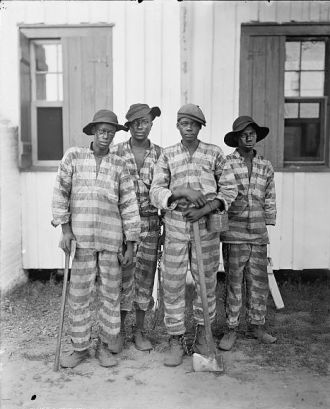
Notorious
The people and places that live on in our memories - not for good reasons but because of how they shocked and saddened.
Images of serial killers, mass murderers, despots and dictators, prisons, and the victims of these horrors. These people & places live on in infamy in our history.
There are the notorious killers: Th... 
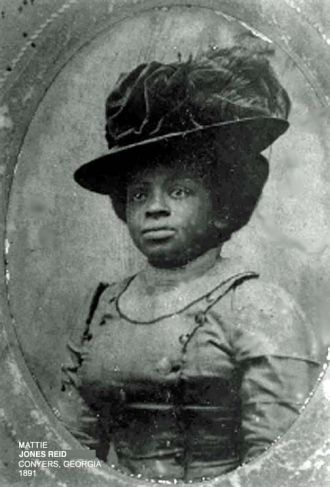
1800s
The 1800s where the end of the industrial revolution and the birth of scientists.
The Industrial Revolution began around 1760 and ran through the 1840's. Then began the birth of the profession of science. Louis Pasteur, Charles Darwin, Michael Faraday, Thomas Edison, and Nikola Te... 
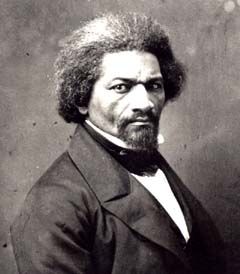
African Americans
See the faces of just some of the many African Americans who have contributed to building the United States into the country it is today.
African Americans in the early history of the United States had an extremely difficult start as immigrants. Having been primarily forced to immigrate to a new continent, African Americans worked throu... 
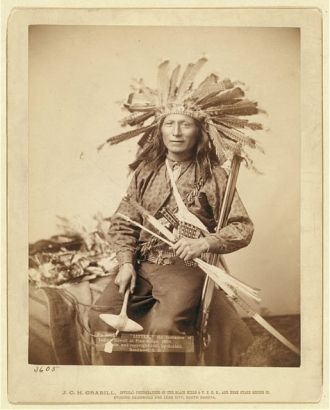
Native Americans
Images of the Native American people - the tribes, their dress, and their lifestyles. We honor and celebrate Native American history with this collection of historic photos.
The best way to understand the people who first inhabited North America, Native Americans, is through their own words. The following quotes contain some of the wisdom passed down through generations o... 
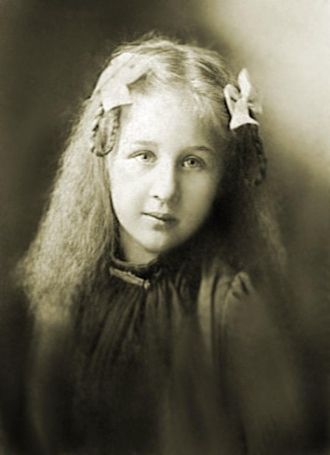
Popular Photos
These historical photos have generated quite the buzz!
This collection of historical photos has got people talking. These photos - either because of the subject and/or the story - have generated a lot of comments among the community. What do you have to s... 
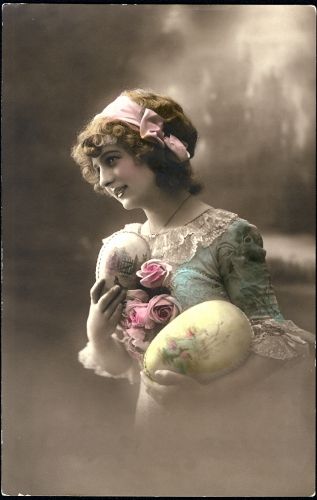
Fashion
Discover how fashion has changed over the years with this collection of photos.
Fashion styles & vintage clothing throughout the decades that will inspire, make you wish for those times again, or may make you ask "What were they thinking"?
Clothing styles have obviously changed ... 
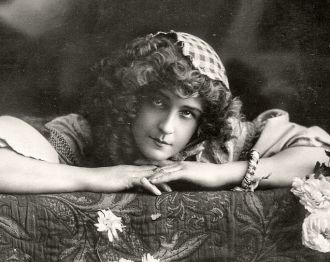
Celebrities
Discover the lives and legacies of notable celebrities from the past, like Bette Davis and John Wayne, by browsing photographs of them in their prime.
The lasting impact of celebrities from the past cannot be denied; they continue to be an essential part of our cultural history. Through their talent, charisma, and unique personalities, they entertai... 
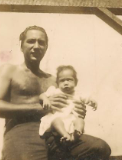
Ward Joseph Lemn
My Grampa Ward: One afternoon while sitting under our mango tree with my mom Alice Puanani Lono (Nani), she shared stories of our family and her growing up in Moanalua. For some time she spoke lovingly of her father, and reminisced of the times she shared with him. He was by far no person of great political importance, or a wealthy businessman, nor did he descend from royal ancestry; but he was just a simple fisherman that loved to fish. This is my story of my grandfather, the late Ward Joseph Lemn of Moanalua.
In the 1920ʻs, life was quite different in Honolulu. The landscape was very different. The streets were not paved and the city lights were not as bright, but on a rainy Christmas night Ward Joseph Lemn was born. He was third child of nine born to Hattie Mokumaiʻa and William Lemn of Moanalua on December 23, 1912. He had a happy and carefree childhood. Moanalua at the time was a very beautiful country. Surrounded by rivers and streams of Moanalua were his playground.
“Papa Ward” as we affectionately called him, was the eldest son of William Lemn and Hattie Mokumaia. His father was pure German and came from Chicago to work as a police officer on Oʻahu Island. His mother was of pure Hawaiian descent and a homemaker born in Moanalua. Tūtū Hattie’s mother was Āma (great-grandmother) Kamaka Hahalawai O Kaʻahumanu. She married Kuliaokekaua O Kamehameha Hoʻokahi Mokumaiʻa of Miloliʻi. In a dream Āma Kamaka Hahalawai saw an island with two rivers that met at the ocean. Between those rivers were lush fertile valleys. She then told her kāne of this dream and both set sail from Kōhala, Hawaii by canoe in search of this place. At first, they landed at Waianae and Āma Kamaka Hahalawai asked her kāne to turn the canoe around and head back east. They came to Mokuoeo and saw the valley of Moanalua. Āma Kamaka Hahalawai chose a quaint home near the river in the uplands of the valley. She became the caretaker for the fishponds of Moanalua, which served the Aliʻis of Oʻahu.
It was ideal for Āma Kamaka Hahalawai to settle in Moanalua and make a home with her Kāne. She raised her children to carry on her traditions of caretaker for the Aliʻis fishponds at Puʻuloa, as she did back in Kōhala. According to Papa Ward, their ancestors come from a long line of Mokumaiʻa fishermen from Miloliʻi and Kōhala. At a young age Tūtū Hattie instilled in Papa Ward and his eight siblings, how important it was to fish to feed the community and care for the family. All the way down to the 1930ʻs Āma Kamaka Hahalawai’s traditions continued, until the valley’s first settlers were removed in in the late 1940s.
At an early age 7, Wardy as he was called, always loved eating fish. In fact, wherever he went he always carried a fishing pole, extra hooks, leads, and lines in hope of catching something to eat. He always came home with the biggest catch for his family and his community of Moanalua. It was not long after, his younger brothers William and Harry took up fishing as hobbies. They admired him so much; they followed him everywhere he went. They always knew he had that right touch to call the fishes and crabs to him.
Paul Parker said, “Papa Ward got in to trouble a lot in Moanalua High School for fighting, and for his punishment Tūtū Hattie would send him to live with her Uncle ʻOʻopa Mokumaiʻa on the Islets of Mokuoeo” (Parker Eulogy). There he grew a love for anything in the water. He later became a great swimmer, surfer, diver, and fisherman. He grew the nickname “Net Man” because he was so great at catching just about anything. Mother Hattie saw his a talent and allowed for Uncle to raise him to fish to feed his family. Uncle ʻOʻopa saw fishing and farming in his genetics from an early age. His Uncle ʻOʻopa would always ask his sister Hattie’s for her son’s help. Papa Ward became his favorite.
Papa Ward met his beautiful Hawaiian Tahitian girl Annie Kaʻehakoni Bartholomew. They quickly fell in love in 1936, married and started a family a few years later. At this time he was still fishing and carrying his traditions past to him from Uncle ʻOʻopa. He had his first child on May 9, 1939 Wanda Hoʻoipo Lemn. Fatherhood took over Papa Ward and soon after the teacher emerged. He then had three more children, Ward Jr, Alice (mom), and Tommy. In 1944 after his second son Ward Jr was born Tūtū Hattie past away. It was difficult for Papa Ward, but he realized how important it was for him to carry on the values and traditions instilled in him since he was a child.
Papa Ward started working down the Pier as a security guard. He worked there for several years. In the 1940sʻ there was a lot of conflicts and strikes going on which cause Papa Ward to quit his job. Nani said, “Daddy (Papa Ward) got mobbed just for working at the pier” (Nani, Personal Interview). At this time he shows great veneration for father hood, which transcended into his children, and then followed into three generations later. He then became a mere manager on McKinley High School in Honolulu taking care of the Maintenance department. He worked there for a few years until 1951 when he moved his family to the shores of Kualoa. Him and his wahine Annie always prayed for a home on the beach, where they could raise their children to be free.
As a worker Papa Ward was such a leader in his time, most managers could not deny him a higher position anytime he applied. He always worked with deep sincerity. He was so passionate about working in the school system because he knew he would be able to speak with the youth about fishing and farming to those students interested. Papa Ward received many awards of accomplishments during his time as a maintenance manager, because of his connection to the staff and students. It was on a hot afternoon of April 1951 when Papa Ward and Grandma Annie purchased a home out in Kualoa, where he could heavily influence his children to carry on his traditions. He was such of lover of the ocean it was pretty hard to keep him out of the water.
The ancient loko iʻa (fishpond) tradition was one of the greatest inventions. Loko iʻa was intricate practice at its best. Papa Ward was well trained in doing this because of his Uncle ʻOʻopa on Mokuoeo. Papa Ward was one of the many fishermen to fish in that area daily. He belief in cultural traditions stayed with him. He made sure to maintain the value and traditions of offerings to the gods and the community all of his life. In the Old days this was seen as a great leader. In his daily catch there was enough fish to go around. Keala says, “They represent one of the ancient world’s most significant and successful aquaculture achievements” (Keala 6). I believe that traditional practices of our people are powerful and It’s honorable to hear his children Ward Jr and Tommy and many grandchildren are still perpetuating lawaiʻa traditions today out at his home in Kualoa and Kaʻaʻawa. At this time he shows great veneration for father hood, which transcended into his children, and then followed into three generations later.
On July 16, 1983, Papa Ward went on his last journey to fishing paradise. The family and friends who surrounded him was full of ideas on how we should handle his funeral, but indeed Papa Ward wanted to be cremated and sent to the sea one last time. With family and friends we scattered his ashes out at Kualoa. Nani says, “that day we let dad (Papa Ward) go to fishing heaven, the clouds open up and the sun poured down on Mokoliʻi (Chinaman Hat). I think that was a sign that Daddy (Papa Ward) was finally in heaven” (Nani, Personal Interview). We released 2500 glass balls collected over the years into the open oceans of Kualoa in memory of a traditional and cultural teacher of the fishing world.
Work Cited
Keala, Graydon, James R. Hollyer, and Luisa Castro. "Hawaiian Fishpond History." Loko Iʻa: A Manual on Hawaiian Fishpond Restoration and Management. Honolulu: College of Tropical Agriculture and Human Resources, University of Hawaiʻi at Mānoa, 2007. 6+. Print.
Lono, Alice Puanani “Nani”. Personal interview. 26 July 2013.
Maly, Kepa. Volume. Hilo: Kumu Pono Associates, 2004. Print. Vol. 2 of Ka Hana Lawai'a a me na ko'a o na kai 'ewalu.
Parker, Paul. "Ward Joseph Lemn." Eulogy of Ward Lemn: n. pag. Print.
In the 1920ʻs, life was quite different in Honolulu. The landscape was very different. The streets were not paved and the city lights were not as bright, but on a rainy Christmas night Ward Joseph Lemn was born. He was third child of nine born to Hattie Mokumaiʻa and William Lemn of Moanalua on December 23, 1912. He had a happy and carefree childhood. Moanalua at the time was a very beautiful country. Surrounded by rivers and streams of Moanalua were his playground.
“Papa Ward” as we affectionately called him, was the eldest son of William Lemn and Hattie Mokumaia. His father was pure German and came from Chicago to work as a police officer on Oʻahu Island. His mother was of pure Hawaiian descent and a homemaker born in Moanalua. Tūtū Hattie’s mother was Āma (great-grandmother) Kamaka Hahalawai O Kaʻahumanu. She married Kuliaokekaua O Kamehameha Hoʻokahi Mokumaiʻa of Miloliʻi. In a dream Āma Kamaka Hahalawai saw an island with two rivers that met at the ocean. Between those rivers were lush fertile valleys. She then told her kāne of this dream and both set sail from Kōhala, Hawaii by canoe in search of this place. At first, they landed at Waianae and Āma Kamaka Hahalawai asked her kāne to turn the canoe around and head back east. They came to Mokuoeo and saw the valley of Moanalua. Āma Kamaka Hahalawai chose a quaint home near the river in the uplands of the valley. She became the caretaker for the fishponds of Moanalua, which served the Aliʻis of Oʻahu.
It was ideal for Āma Kamaka Hahalawai to settle in Moanalua and make a home with her Kāne. She raised her children to carry on her traditions of caretaker for the Aliʻis fishponds at Puʻuloa, as she did back in Kōhala. According to Papa Ward, their ancestors come from a long line of Mokumaiʻa fishermen from Miloliʻi and Kōhala. At a young age Tūtū Hattie instilled in Papa Ward and his eight siblings, how important it was to fish to feed the community and care for the family. All the way down to the 1930ʻs Āma Kamaka Hahalawai’s traditions continued, until the valley’s first settlers were removed in in the late 1940s.
At an early age 7, Wardy as he was called, always loved eating fish. In fact, wherever he went he always carried a fishing pole, extra hooks, leads, and lines in hope of catching something to eat. He always came home with the biggest catch for his family and his community of Moanalua. It was not long after, his younger brothers William and Harry took up fishing as hobbies. They admired him so much; they followed him everywhere he went. They always knew he had that right touch to call the fishes and crabs to him.
Paul Parker said, “Papa Ward got in to trouble a lot in Moanalua High School for fighting, and for his punishment Tūtū Hattie would send him to live with her Uncle ʻOʻopa Mokumaiʻa on the Islets of Mokuoeo” (Parker Eulogy). There he grew a love for anything in the water. He later became a great swimmer, surfer, diver, and fisherman. He grew the nickname “Net Man” because he was so great at catching just about anything. Mother Hattie saw his a talent and allowed for Uncle to raise him to fish to feed his family. Uncle ʻOʻopa saw fishing and farming in his genetics from an early age. His Uncle ʻOʻopa would always ask his sister Hattie’s for her son’s help. Papa Ward became his favorite.
Papa Ward met his beautiful Hawaiian Tahitian girl Annie Kaʻehakoni Bartholomew. They quickly fell in love in 1936, married and started a family a few years later. At this time he was still fishing and carrying his traditions past to him from Uncle ʻOʻopa. He had his first child on May 9, 1939 Wanda Hoʻoipo Lemn. Fatherhood took over Papa Ward and soon after the teacher emerged. He then had three more children, Ward Jr, Alice (mom), and Tommy. In 1944 after his second son Ward Jr was born Tūtū Hattie past away. It was difficult for Papa Ward, but he realized how important it was for him to carry on the values and traditions instilled in him since he was a child.
Papa Ward started working down the Pier as a security guard. He worked there for several years. In the 1940sʻ there was a lot of conflicts and strikes going on which cause Papa Ward to quit his job. Nani said, “Daddy (Papa Ward) got mobbed just for working at the pier” (Nani, Personal Interview). At this time he shows great veneration for father hood, which transcended into his children, and then followed into three generations later. He then became a mere manager on McKinley High School in Honolulu taking care of the Maintenance department. He worked there for a few years until 1951 when he moved his family to the shores of Kualoa. Him and his wahine Annie always prayed for a home on the beach, where they could raise their children to be free.
As a worker Papa Ward was such a leader in his time, most managers could not deny him a higher position anytime he applied. He always worked with deep sincerity. He was so passionate about working in the school system because he knew he would be able to speak with the youth about fishing and farming to those students interested. Papa Ward received many awards of accomplishments during his time as a maintenance manager, because of his connection to the staff and students. It was on a hot afternoon of April 1951 when Papa Ward and Grandma Annie purchased a home out in Kualoa, where he could heavily influence his children to carry on his traditions. He was such of lover of the ocean it was pretty hard to keep him out of the water.
The ancient loko iʻa (fishpond) tradition was one of the greatest inventions. Loko iʻa was intricate practice at its best. Papa Ward was well trained in doing this because of his Uncle ʻOʻopa on Mokuoeo. Papa Ward was one of the many fishermen to fish in that area daily. He belief in cultural traditions stayed with him. He made sure to maintain the value and traditions of offerings to the gods and the community all of his life. In the Old days this was seen as a great leader. In his daily catch there was enough fish to go around. Keala says, “They represent one of the ancient world’s most significant and successful aquaculture achievements” (Keala 6). I believe that traditional practices of our people are powerful and It’s honorable to hear his children Ward Jr and Tommy and many grandchildren are still perpetuating lawaiʻa traditions today out at his home in Kualoa and Kaʻaʻawa. At this time he shows great veneration for father hood, which transcended into his children, and then followed into three generations later.
On July 16, 1983, Papa Ward went on his last journey to fishing paradise. The family and friends who surrounded him was full of ideas on how we should handle his funeral, but indeed Papa Ward wanted to be cremated and sent to the sea one last time. With family and friends we scattered his ashes out at Kualoa. Nani says, “that day we let dad (Papa Ward) go to fishing heaven, the clouds open up and the sun poured down on Mokoliʻi (Chinaman Hat). I think that was a sign that Daddy (Papa Ward) was finally in heaven” (Nani, Personal Interview). We released 2500 glass balls collected over the years into the open oceans of Kualoa in memory of a traditional and cultural teacher of the fishing world.
Work Cited
Keala, Graydon, James R. Hollyer, and Luisa Castro. "Hawaiian Fishpond History." Loko Iʻa: A Manual on Hawaiian Fishpond Restoration and Management. Honolulu: College of Tropical Agriculture and Human Resources, University of Hawaiʻi at Mānoa, 2007. 6+. Print.
Lono, Alice Puanani “Nani”. Personal interview. 26 July 2013.
Maly, Kepa. Volume. Hilo: Kumu Pono Associates, 2004. Print. Vol. 2 of Ka Hana Lawai'a a me na ko'a o na kai 'ewalu.
Parker, Paul. "Ward Joseph Lemn." Eulogy of Ward Lemn: n. pag. Print.
People tagged:

